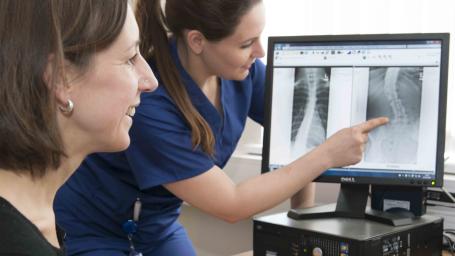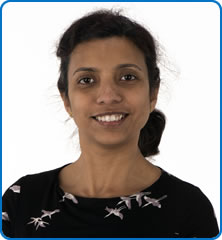Imaging Day Case Unit
The Imaging Day Case Unit is a nurse led unit, embedded within Interventional Radiology.
It offers 18 day case beds designated to patients who have had or are having procedures performed within the Imaging department.
The unit has been specifically designed to improve pre and post-operative care delivered by specialist trained Imaging Department nurses, as well as improving wait times for the Imaging department as a whole.
Imaging Department Contact Centre
If you are unable to attend your appointment please let us know as soon as possible. You can also contact the Imaging Department Contact Centre if you wish to change or discuss your appointment.
Telephone: 0117 414 8989
Young Carers
If you are a young person involved in caring for a parent or sibling who has a physical or mental health need, disability or substance misuse problem then you may be a young carer. You might have to take on responsibilities that an adult may usually have including practical tasks or supporting them emotionally.
If you want to find out more about being a young carer then lots more information can be found on NHS.
As a young carer you might find this has an impact on your life including school or college, socialising with friends and how you feel emotionally. We know that it is important to make sure that you are supported when you access our services. If you have to come to hospital with the person you care for or as a patient yourself, then you can contact the Carer Liaison Worker. They can provide support, information and be an advocate for you and the person you care for.
Carers Liaison Service
If you would like support while the person you care for is in hospital, please contact:
Telephone: 07731 623636
Email: bnssg.hospitalcarerliaisonservice@nhs.net
Vascular Current Research
Vascular Current Research
The Vascular Research team conducts research that aims to improve the care of men and women using vascular services department at NBT. This includes arterial surgery, diabetic foot care, leg ulcers, varicose veins, and other vascular diseases.
We have had a successful research team in place for several years delivering complex interventional and observational studies.
The team collaborates widely with other disciplines and professions to develop ground-breaking research and care, for our patients and throughout the NHS.
Please speak to the person treating you to see if there is a research study that may be able to help you.
Current Studies:
CAMELOT
To establish if the use of rectus sheath catheter-delivered local anaesthetic infusion in addition to standard analgesia, is superior to standard analgesia without RSC as defined by the Overall Benefit of Analgesia Score(OBAS)over the first 5 post operative days.
Principal Investigator: Dr Ronelle Mouton / CO-PI Mrs Jane Ashby-Styles
Planned End Date: Recruitment ending 01/05/2026
Local Ref (R&D no): 5126
PLACEMENT
After an amputation, all patients get some pain. Analgesia (pain relieving medicines) help reduce this pain. Managing this pain helps recovery straight after the operation, especially when moving out of the bed with the physiotherapists. The amount of pain felt in the first few days after an amputation may also affect the amount of long-term pain patients get, including “phantom limb” pain. Good pain management is therefore important for every patient.
We are comparing two different types of pain management after a patient has a leg amputation to find out if one method is better than the other.
Project Details
PI: Chris Twine
Planned End date: 31/03/2026
Local Ref: 5365
EADC
The purpose of this study is to evaluate the safety and performance of various Custom-Made Stent-graft Devices (CMD) (this is a tube made specific to the patient’s individual specifications) used for endovascular (inside the vessel) treatment of the main artery of the body (aorta) and related diseases by collecting information on the real-world use of the devices. Health data from at least 600 patients treated at up to 20 hospitals in Europe will be collected as part of this clinical study.
The study results will be used to support the continuation of the CMDs on the market to continue treatment of patients like you. In addition, the study will support the manufacturer’s obligation for post-market product surveillance as well as Cook's technology development.
Project Details
PI: Paul Bevis
Planned End date: 16/09/2030
Local Ref: 5443
EVOCC
Lower limb Peripheral Arterial Disease (PAD) is a form of severe occlusive aorto-iliac disease which affects one in five people over 55 years of age in the UK and is the main cause of leg amputations in the NHS. This is caused by blockages or narrowings in the arteries carrying blood to the leg(s). Some sufferers may develop leg pain when walking whereas others might have leg pain at rest or death of the tissue in the leg(s). This can be leg and life threatening and must be treated with surgery to save the leg or life. The surgery can use one of two common ways of getting more blood to your leg(s):
- Open surgery: this involves an operation to bypass the blocked/narrowed arteries
Endovascular surgery: this involves inflating a balloon inside the blocked/narrowed arteries forcing them to open (angioplasty). Sometimes it is necessary to put a small metal tube into the artery to hold it open (stenting). This type of procedure is called endovascular treatment
Both open and endovascular surgery are currently offered to patients like you in the NHS.
This trial aims to understand which type of surgery is better for saving the legs and lives of patients with PAD, which type is less likely to lead to more surgery in the future and which is better cost-wise for the NHS. If you decide to take part in this trial, you will receive one of the two previously mentioned surgeries and your recovery will be monitored afterwards.
Project Details
PI: Peter Mezes
Planned End date: 01/04/2026
Local Ref: 5524
THRIVE
Endovenous interventions are keyhole operations for varicose veins that are carried out from within the vein itself. Varicose veins are enlarged veins close to the surface of the skin. They are connected to the bigger deeper veins in the leg, known as deep veins. Because of this, operations to close the varicose veins can increase the chance of a blood clot forming in the deep veins. A blood clot in the deep veins (also known as a ‘deep vein thrombosis’ [DVT]), happens in around 1 in 59 people after endovenous operations. A clot in the leg can cause swelling, pain and other problems. If a clot in the leg breaks off and travels to the lungs (called a ‘pulmonary embolism’ [PE]), it may be life threatening.
There is a national drive to reduce blood clots by identifying those most at risk and treating them with medicines that reduce the blood’s tendency to form clots. These medicines are generally very safe but can rarely cause bleeding for example in the bowel and brain. In other short duration procedures, where people can go home on the same day, medicines to reduce blood clots are not prescribed, as developing a blood clot is so rare.
Varicose vein procedures, however, carry a slightly higher risk of blood clot formation, and we are currently unsure if these clot reducing medicines are beneficial in preventing blood clots in patients undergoing these procedures. Elastic stockings or dressings that squeeze the leg and improve the blood flow through the veins are also applied after the varicose vein procedure which helps to reduce the risk of blood clots.
The purpose of this study is to investigate if it is worthwhile prescribing anticoagulants to reduce blood clots after varicose vein procedures. People enrolled in the study will undergo an assessment to make sure that they don’t have the most important risk factors for clots. Those at high risk would not be included in the study. Some participants will receive elastic stockings or dressings alone, while other participants will receive this plus anticoagulation. A computer will decide at random the treatment you will receive.
Project Details
PI: Jude Day
Planned End date: 31/08/2026
Local Ref: 5468
Take Part in Research

Become one of the thousands of people taking part in research every day within the NHS.
About Research & Development

Find out more about our research and how we're working to improve patient care.
Contact Research
Research & Development
North Bristol NHS Trust
Level 3, Learning & Research building
Southmead Hospital
Westbury-on-Trym
Bristol, BS10 5NB
Telephone: 0117 4149330
Email: research@nbt.nhs.uk
Committee Terms of Reference
The Trust Board has overall responsibility for the activity, integrity and strategy of the Trust and is accountable, through its Chairman, to the NHS Trust Development Authority and the Secretary of State for Health.
Its role is largely supervisory and strategic and it has six key functions:
- to set strategic direction, define objectives and agree plans for the Trust
- to monitor performance and ensure corrective action
- to ensure financial stewardship
- to ensure high standards of corporate and clinical governance and personal behaviour
- to appoint, appraise and remunerate executives
- to ensure dialogue with external bodies and the local community.
Download committee terms of reference:
Audit and Risk Committee
Southmead Hospital Charity Committee
Finance, Digital and Performance Committee
Quality Committee
Remuneration and Nomination Committee
People, Equality, Diversity and Inclusion Committee
Patient & Carer Experience Committee
Mr Marcus Brooks - Vascular Surgery
GMC Number: 4066590
Year of first qualification: 1993, Cambridge University Medical School
Specialty: Vascular Surgery
Clinical interests: Aortic disease, including thoracic aortic aneurysm and dissection.
Secretary: Deborah Grimwoood
Telephone: 0117 414 8800
Mr Brooks is a Fellow of the Royal College of Surgeons of England, an elected council member of Vascular Society of Great Britain and Ireland, a member of the NHS England Clinical Commissioning Group (CCG) for Vascular Surgery. He is a member of the European Society of Vascular Surgery and the Association of Surgeons of Great Britain and Ireland.
Previous posts help include Clinical Director of the Bristol Bath Weston AAA Screening Programme and Clinical Lead for the Bristol Bath Weston Vascular Network.
If you would like to view independent feedback visit www.iwantgreatcare.org/doctors/mr-marcus-brooks
If you would like to leave your own feedback visit http://iwgc.net/eqqf
Skin Cancer Plastic Surgery, Dermatology Consultants & Associate Specialists

Mr Dominic Ayers MB BChir, FRCS
Consultant Plastic Surgeon
Clinical Interest: Skin Cancer and Management of Melanoma
Secretary: Joanne Hawkins, 0117 414 7607

Dr Helen Audrain BSC, MBChB, MRCP (UK) Lead for Dermatology
Consultant Dermatologist
Clinical Interest: General Dermatology, Vulval Dermatology, Dermatology & Skin Cancer Surgery
Secretary: Carole Wathan, 0117 414 7621

Dr Adam Bray MBChB FRCP (UK) Derm (Mohs Service)
Consultant Dermatologist
Clinical Interest: Dermatology surgery, including Mohs micrographic surgery, and reconstruction
Secretary: Carole Wathan, 0117 414 7621

Mr Eugene Curtin MB, BMedSc, iMRC, MD
Associate Specialist in Plastic Surgery
Clinical Specialist: Skin Cancer, Reconstructive Surgery and Dermoscopy
Secretary: Debbie Undy, 0117 414 7593

Dr Amrit Darvay BSc (Immunol) MB BS (UK) Lead for Skin Cancer Services
Consultant Dermatologist
Clinical Interest: Skin Cancer, Acne, Psoriasis and Eczema
Secretary: Dot Phillips, 0117 414 7596

Mr Iraklis Delikonstantinou MD, FEBOPRAS
Consultant Plastic Surgeon
Clinical Interest: Melanoma and Non-melanoma Skin Cancers and Post-Mohs Reconstruction
Secretary: Rachael Jones, 0117 414 7603

Dr Giles Dunnill MB BS, MD, FRCP
Consultant Dermatologist
Clinical Interest: Dermatology & Skin Cancer, Acne, Psoriasis, Eczema and Skin Lymphoma
Secretary: Roz Mogg, 0117 414 7620

Dr Katherine Finucane, Associate Specialist in Dermatology MA (Oxon), BM BcH
Consultant Dermatologist
Clinical Interest: Skin Cancer, General Dermatology and Medical Education
Secretary: Roz Mogg, 0117 414 7620

Dr Daniel Keith BMBCh MA MRCP (Laser Service)
Consultant Dermatologist
Clinical Interest: General Dermatology, Skin Cancer, Laser and Dermatological Surgery
Secretary: Carole Wathan, 0117 414 7621

Dr Shalini Narayan MBBCh, MRCP
Consultant Dermatology
Clinical Interest: Skin Cancer, Eczema, Dermatitis, Psoriasis and Acne
Secretary: Dot Phillips, 0117 414 7596

Mr Antonio Orlando MD, FRCS, EBOPRAS
Consultant Plastic Surgeon
Clinical Interest: Melanoma, Skin Cancer and Head & Neck Surgery
Secretary: Joanne Hawkins, 0117 414 7607

Mr Ewan Wilson MBBS MSc, FRCS (Plas) SWAG Chair Plastics Lead for Skin Cancer Services
Consultant Plastic Surgeon
Clinical Interest: Skin, Melanoma and Mohs & Reconstructive Surgery
Secretary: Debbie Harris, 0117 414 7607
Dr Alexandra Valencia - Radiology
GMC Number: 6034189
Year of first qualification: 2003, MBBS equivilant, Universidad del Rosario, Bogota, Colombia
Specialty: Radiology
Clinical interest: Director of Avon Breast Screening. Breast Imaging
Secretary: Janette Burnette
Telephone: 0117 414 9014
Dr Alexandra Valencia is a Consultant Radiologist with a Specialist Interest in all aspects of Breast Imaging and Breast Intervention including screening and symptomatic patients, stereocore biopsies and excisions, Breast MRI, MR guided biopsies and CT staging. She is the Clinical Director Avon Breast Screening Unit.Miss Sanchita Sen - Obstetrics & Gynaecology

GMC Number: 6041448
Year & location of first qualification: 1997, University of Calcutta, India
Specialty: Gynaecology and Obstetrics
Clinical interests: Urogynaecology, Colposcopy, medical education
Secretary: Emma Thompson
Telephone number: 0117 4146751
Miss Sanchita Sen qualified in India and has got experience of working in both India and the UK.
Miss Sen trained in the Oxford and the Severn regions before qualifying and being appointed as a consultant at Southmead Hospital in 2012.
She has special interests in prolapse and incontinence, colposcopy, medical education and general obstetrics and gynaecology.
She is a member of BSUG (British Society for Urogynaecology) and IUGA (International Urogynaecological).
SWNODN Training & Development
The South West Neuromuscular Operational Delivery Network (SWNODN) has been tasked with improving knowledge of neuromuscular conditions as well as training local teams of allied health professionals to deliver better, safer and equitable care in the South West. To achieve this, SWNODN specialists provide a variety of training and development opportunities. Many of the training and development requirements need to be delivered face to face, however, the SWNODN is also working to develop online e-learning for staff working in primary and secondary care.
General Practitioners and other healthcare professionals
Royal College of General Practitioners - Neuromuscular Disorders e-learning course
Muscular Dystrophy UK, in collaboration with the Royal College of General Practitioners, has produced an e-learning course for healthcare professionals which discusses the presentation and prognosis of the more common neuromuscular diseases. Please click on this link: http://elearning.rcgp.org.uk/course/index.php?categoryid=8 and select the "Neuromuscular Disorders" module. (free registration will be required)
Our Neuromuscular Advisors would also be happy to come along to your GP practice to answer any questions and provide information on what non-clinical support they can offer your patients in the community. Please contact 0117 4141184 to discuss your requirements.
Physiotherapists
Specialist Neuromuscular Physiotherapists attend paediatric and adult neuromuscular clinics around the region, providing specialist physiotherapy advice and support to patients. Community therapists are very welcome to attend these clinics with their patients to help facilitate communication and collaboration. SWNODN Neuromuscular Physiotherapists are also a resource to therapy teams around the South West for training in various aspects of assessment and treatment of neuromuscular conditions, as well as offering joint visits and ongoing advice and support.
Adult Physiotherapy e-learning module
Muscular Dystrophy UK has worked with Kingston University & St George's University of London and the MRC Centre for Neuromuscular Diseases, UCLH to develop an e-learning module on neuromuscular conditions for physiotherapists. Aimed at community and neuro-physiotherapists, the module focuses on 11 short topics that develop critical understanding of the management of muscle wasting conditions. The course is free and can be accessed via this link Physiotherapy Management in Neuromuscular Diseases.
If you would like further details about opportunities for training in your region, or would like to arrange for a SWNODN Neuromuscular Physiotherapist to deliver some training for your team, please contact the SWNODN and become an Affiliate Member of the Network to be the first to know about any training scheduled in your area.
Clinical Psychologists
Specialist Psychology support is available in the South West for mental health and peripheral support services. Support can be provided for triaging patient care, providing CPD on invited topics and facilitating peer supervision around condition specific issues / questions.
Limited direct therapeutic support is offered for patients presenting with issues directly related to adjustment to a neuromuscular conditions. However, mental health needs are generally considered appropriate for referral to mainstream child and adult mental health services, with access to the Network’s Specialist Psychologists available if required.
Nursing/AHPs/Social Care
The South West Neuromuscular Operational Delivery Network (SWNODN) Neuromuscular Advisors would be happy to advise other health and social care professionals about specific neuromuscular conditions and can provide a valuable knowledge resource around support for patients in their area through charitable organisations, hospices, etc.
The SWNODN Advisors are based within acute hospitals and therefore can assist with discharge of patients who may need complex arrangements in the community. They can provide in-house training about neuromuscular conditions and the patient pathway through the SWNODN services.
